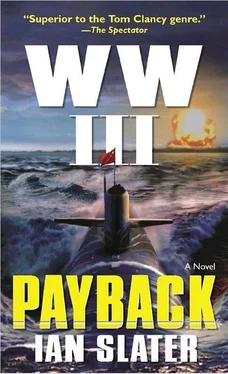Soon gruesome pictures of the man’s headless corpse were found by Tayama, Yoko, and Kempei Tai agents at their individual drop-off points.
It was this agent’s execution, his body having been dumped in shark-infested waters off Molokini’s atoll near Maui, that was responsible for a sudden increase in American counterespionage surveillance of the large Hawaiian-Japanese population. For Yoko, her American citizenship exacerbated her guilt at times to almost unbearable proportions, despite her public face, especially as the Kempei Tai increased pressure on them to spend more time on their days off collecting as much intelligence as possible about the fleet anchored in Pearl Harbor. It was becoming too dangerous for Tayama to use his grandfather’s Voigtlander camera.
On December 6, 1941, watching dancers already practicing for next summer’s Prince Lot Hula Festival, Tayama and Yoko were stopped by a Japanese-Hawaiian man in his late twenties. Dressed in a colorful hibiscus-patterned shirt and matching shorts, and carrying a tightly rolled-up copy of the Honolulu Advertiser, he showed them a badge — police, FBI, Naval Intelligence, they didn’t know which — and motioned them away from the edge of a noisy crowd nearby who were watching a hula competition. He led them toward the carp ponds and golden-stemmed bamboo in front of the Gardens’ Chinese hall, where a blush of yellow-orange ilima flowers against the green bowed obediently beneath the gentle, cooling flow of plumeria-tinged trade winds. Yoko, so frightened she felt she could barely breathe, fixed her eyes on the ilima blossoms that cast softly moving shadows along the edge of the pond in which big red-sashed carp glided by, Yoko envying the fishes’ tranquillity. They heard the carefree laughter of a group of Nisei boys passing them, shouldering a six-foot koa-wood surfboard, another boy “heading” an even more prized sixteen-foot olo board, once allowed only to Hawaiian royalty, the youths’ raucous chatter, and the fact that the boys seemed not to notice anyone else’s presence in the park, increasing Yoko’s fear.
The government agent stopped in the shade of a multitrunked banyan tree, well away from the hula spectators. “I’m Lieutenant Suzuki, U.S. Naval Intelligence. You know what that is?”
Yoko looked somewhat puzzled, but answered, “Police?”
“Sort of,” Lieutenant Suzuki said.
“Oh,” said Tayama, “we have a license for stall.”
Suzuki turned quickly, his right hand grasping his newspaper, trying to hit a wasp. “You have a what ?” he asked Tayama brusquely.
“A license,” explained Tayama, “for our stall.”
“No, no,” said Lieutenant Suzuki, suddenly twisting away from the wasp, smacking at it simultaneously. “Get outta here!”
“Wasp sting very bad,” said Yoko with a sweet seriousness.
“What? — oh yeah. Damn things. It’s the crowd. Too many people.”
Yoko and Tayama waited politely as the wasp came in at Suzuki’s head again. This time Suzuki’s rolled-up Advertiser hit its target, the wasp momentarily flung into the brown grass, where the lieutenant’s sandal quickly squashed it.
“Got the bastard!” Suzuki said triumphantly, and turned to Tayama. “You’re old Arturo’s grandson, aren’t you?”
“Yes,” Tayama answered, annoyed by Suzuki’s easy familiarity with his grandfather’s name but trying not to show it. The least this policeman could have said was “ Mr. Omura’s grandson.”
“Why?” Tayama asked in as neutral a tone as he could muster, the Kempei Tai always having impressed upon their agents that while it is risky to appear defiant to investigators, it can also be dangerous to roll over like a dog in submission. Confident, patriotic citizens in America, Tayama had been told, and which he’d learned in Hawaii, didn’t have anything like the respect for, or fear of, authority that citizens in Japan displayed. Your average U.S. citizen, the Kempei Tai had told him, would just as likely question the questioner with something like, “What’s the problem?”
Lieutenant Suzuki stamped on the dead wasp again as if to emphasize his unrelenting nature. “You fish a lot?”
“Fish?” Tayama shrugged — he felt American. “Yeah,” he said easily — not “yes,” but “yeah.” “So,” he added, grinning, “there a law against fishing?”
“No,” said Suzuki, turning his attention to Yoko, who was looking respectfully at this man who felt the need to kill insects twice. “No law against it. It’s just that you’ve been seen fishing a lot near Pearl.” Suzuki was still looking intently at Yoko, the trade wind that was whispering through the profusion of banyan leaves above them gently blowing a strand of hair across her slightly parted lips.
“So?” said Tayama, fighting his anger at how Suzuki was staring at Yoko, the lieutenant’s look lascivious in its intensity. “You want me to fish somewhere else?”
“Might be an idea,” said Suzuki, without taking his eyes off Yoko.
Tayama was about to say, “It’s a free country,” but that would be pushing it. At the same time, he was aware that too easy an acquiescence might confirm any suspicions Suzuki was harboring about him or Yoko. “Okay, but what’s the problem?”
“Security,” said Suzuki, his eyes shifting suddenly to Tayama. “Navy doesn’t like people getting too close to Pearl.”
“Okay,” said Tayama. “All this trouble with Tojo, right?”
“Yeah.”
Tayama nodded thoughtfully. “He’s a troublemaker, that one,” he said, and he meant it. “They ought to do something about him.” Suzuki sensed a hard conviction in the young Nisei’s voice, a tone that made it clear that this Omura really did not like the Japanese war minister.
Tayama was feeling increasingly nervous. If Suzuki mentioned his and Yoko’s nightly walks through Moanalua Gardens, it would tell Tayama that U.S. Naval Intelligence was doing much more than a simple security check on them.
“Don’t take offense,” said Suzuki. “It’s not just you. They don’t want anyone near Pearl.”
“Fine,” said Tayama.
Suzuki said nothing, and there was an awkward silence before he gave a nod and walked away. Another wasp swooped out of the banyan toward him; the investigator frenetically struck out again with the newspaper.
“He looks so funny!” said Yoko, hand to mouth as if to stem an explosion of laughter.
“Don’t!” Tayama said. “That’d really make him—” Taking Yoko’s hand, he turned about quickly to look back at the hula competitions, and they both shook with laughter, their outburst exacerbated by the sudden release of tension, the sound of their laughter fortunately subsumed by the clapping of the hula spectators. Tayama told Yoko he would have to find a better hiding place for the concealed camera in his tackle box. No doubt the Kempei Tai would press him to keep photographing Pearl, whether he kept fishing or not. Tayama and Yoko also reaffirmed their decision never to disclose the name of their shikisha —controller — to each other. That way, if they were ever caught, neither of them could identify the other’s contact. Tayama wondered just how many spies, willing or otherwise, the Kempei Tai had planted throughout these beautiful and, for him and Yoko, dangerous islands.
After they made love the next morning, he showed Yoko where the camera and lenses were, in the event something happened to him before he could move them unobserved from the apartment. It had been during one of the rare times when his snoopy landlady wasn’t at home that he’d taken the Voigtlander and lenses out of the false bottom of his fishing tackle box and placed them beneath a floorboard in his apartment. “If I’m not here,” he told her, “and you have to get the camera quickly, don’t bother fiddling about with the coins I use to lever it up. Go get the claw hammer from the cupboard under the bathroom sink. It’s in with the other plumbing tools.”
Читать дальше












